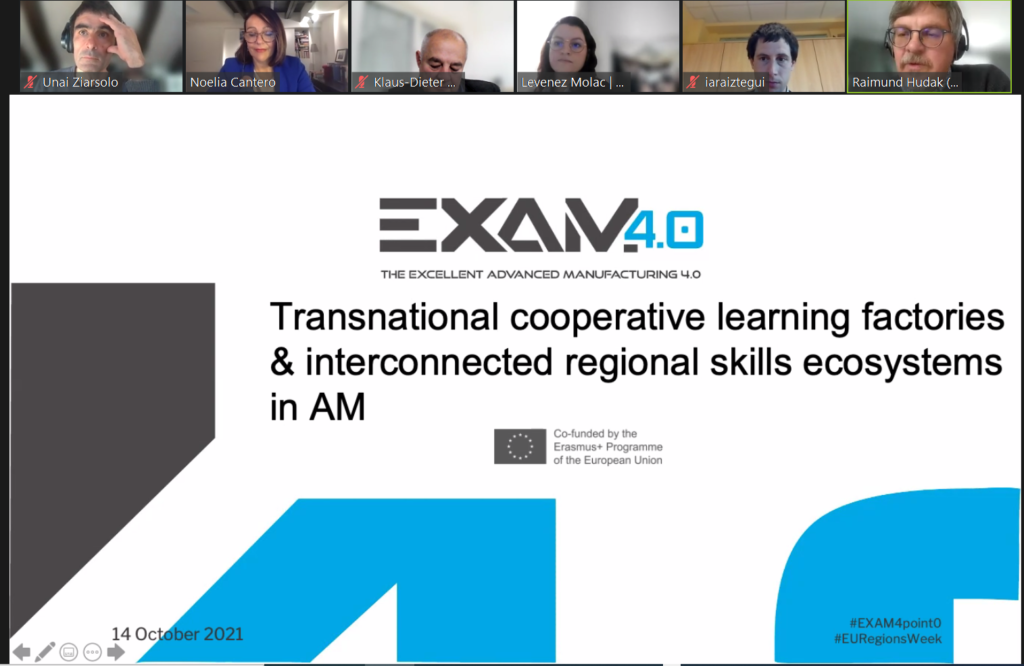Regional skills ecosystems in Advanced Manufacturing discussed at the #EURegionsWeek 2021
19/10/2021

EARLALL organised, on 14 October 2021, a workshop entitled: “Transnational cooperative learning factories & interconnected regional skills ecosystems in Advanced Manufacturing” at the European Week of Regions and Cities 2021. The session was featuring the EXAM 4.0 Erasmus+ project and gathered project partners, regional and local stakeholders, companies and students from the Vocational Education and Training center Miguel Altuna, who were following the workshop in class.
The advanced manufacturing (AM) 4.0 sector is an asset for the European economy and a driver for employment. However, skills mismatches are hampering its further development. In this context, building regional skills ecosystems will enable a more competitive European economy, for which “transnational cooperative learning factories” can be a key solution, with a strong involvement of Vocational Education and Training. The workshop, moderated by Noelia Cantero, EARLALL Director, introduced the concept of “transnational cooperative learning factories” as a solution to bridge skills gaps at regional level. It refers to the collaboration of institutions in which academic teaching and research takes place in different realistic production environments, developing real collaborative workplaces.
The workshop was introduced by Rikardo Lamadrid, Director General for advanced New Technologies and Advanced Learning at the Ministry of Education of the Basque Government. He described the role of AM and skills intelligence for regional development and smart specialisation, showing videos of how technology can re-define the way of living and thinking. Then, Raimund Hudak, senior researcher and lecturer at the Duale Hochschule Baden Württemberg in Germany – DHBW Heilbronn, presented the EXAM 4.0 project and the collaborative learning factories in Vocational Education and Training Institutions. The learning factories’ aims are to enhance academic education trough offering more realistic hands-on practical experience, to enable the acquisition of technical and vocational skills but also to facilitate experimentation for research, and the acquisition of the skills and understanding that these activities require. He was followed by his colleague Professor Klaus-Dieter Rupp, who presented in practice the ongoing work of the collaborative factories. He showed the work achieved by the students to develop the learning factories.
|
|
|
|
Unai Ziarsolo, International Projects manager at Tknika, Basque Country, closed the panel by presenting EXAM 4.0 and the learning transformation, highlighting the challenges faced by the industry in the AM sector. He said: “lifelong learning is even more important than before, we need to upskills and reskill the workers”. The second part of the workshop was shaped as a round table discussion with the participants and the speakers. The questions raised during this exchange were the following: how can the collaborative learning platform contribute to the internationalization of VET systems? Looking ahead, some questions related to the future of work were also raised.
Useful documents
Presentations
- Rikardo Lamadrid, Director General for advanced New Technologies and Advanced Learning at the Ministry of Education of the Basque Government
- Raimund Hudak, senior researcher and lecturer at the Duale Hochschule Baden Württemberg in Germany – DHBW Heilbronn
- Unai Ziarsolo, International Projects manager at Tknika, Basque Country







